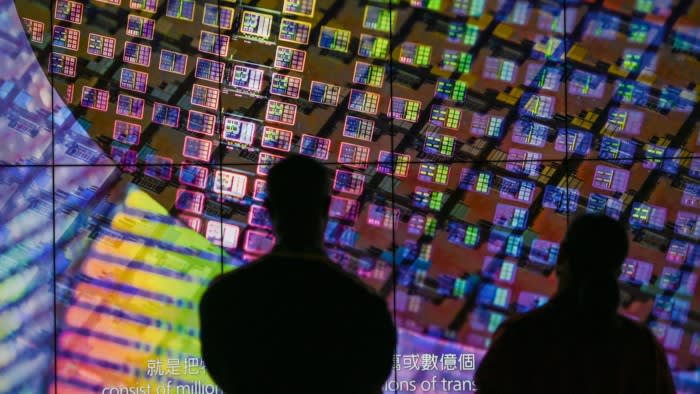Unlock the Editor’s Digest for free
Roula Khalaf, Editor of the FT, selects her favourite stories in this weekly newsletter.
Taiwan Semiconductor Manufacturing Company has said it alerted the US government to a potential attempt to have it manufacture artificial intelligence chips for Chinese technology group Huawei in circumvention of export controls.
The Information, a technology news publication, reported last week that the Department of Commerce was investigating whether TSMC had been violating US export controls by making AI or smartphone chips for Huawei.
TSMC, the world’s largest contract chipmaker, said it had itself brought the issue to Washington’s attention.
“We proactively communicated with the US commerce department regarding the matter in the report. We are not aware of TSMC being the subject of any investigation at this time,” the company said in an emailed statement.
Two people familiar with the situation said TSMC had recently notified the commerce department after a customer placed orders for a chip that resembled Huawei’s Ascend 910B, a processor designed for large language model training.
TSMC manufactured the precursor of the 910B chip before the US sanctions came into force.
Over the past few years, Washington has used a widening array of export controls to try to make it impossible for Chinese companies to obtain the most advanced semiconductors or to design and manufacture them. Huawei has been one of the main targets of that effort, which reflects the two superpowers’ intensifying competition for technology leadership.
One of the key tools in the export controls is a rule that bars chip manufacturers worldwide from using US technology or equipment to make chips destined for Huawei or for use in its products.
Since every semiconductor fabrication plant, or fab, uses some specialised US-made tools, that rule was expected to block Huawei from obtaining chips made by TSMC. The Taiwanese company accounts for more than 90 per cent of the market for the most advanced chips.
“TSMC is a law-abiding company and we are committed to complying with all applicable rules and regulations, including applicable export controls,” the company said in its statement. “In compliance with the regulatory requirements, TSMC has not supplied to Huawei since mid-September 2020.”
One person close to TSMC said the company, after receiving an order that raised doubts, had spoken both to the customer involved and to the commerce department. The department’s investigation of the issue would be “related to” TSMC, but the company would not be the target of a probe, the person said.
Another person familiar with the situation said there had been “conversations” between the department and the company about a potential attempt at circumvention of export controls, but there was no suggestion of malicious compliance violations on TSMC’s part.
TSMC said it maintained a “robust and comprehensive export system” to ensure compliance. “If we have any reason to believe there are potential issues, we will take prompt action to ensure compliance, including conducting investigations and proactively communicating with relevant parties including customers and regulatory authorities,” it added.
Additional reporting by Eleanor Olcott in Beijing

